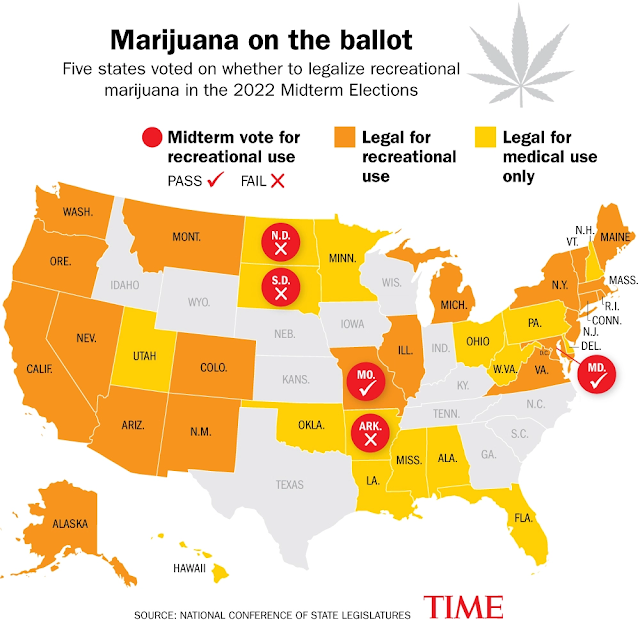My Stanford colleague Dr. Rob Jackler has a longstanding interest in nicotine as an addictive drug that continues to be effectively marketed and ineffectively regulated.
Lately he's been concerned with novel delivery systems, such as the non-combustion vaping devices offered by sellers like Juul (which has recently been on a regulatory roller coaster.)
You can find many of his papers at the Stanford Research into the Impact of Tobacco Advertising (SRITA) site. The most recent of these papers concerns the fact that a lot of regulation is focused on "tobacco products," but that nicotine itself--the addictive chemical in tobacco--has been successfully synthesized in the lab, and so can be marketed as a "tobacco free" product.
Here's a recent NY Times article on his work:
The Loophole That’s Fueling a Return to Teenage Vaping. Sales are rising of flavored e-cigarettes using synthetic nicotine that evades regulatory oversight, a gap that lawmakers are now trying to close. By Christina Jewett
And here's the paper:
Marketing of “Tobacco-Free” and “Synthetic Nicotine” Products. Ramamurthi D, Chau C, Lu Z, Rughoobur I, Sanaie K, Krishna P, Jackler RK. SRITA White Paper. March 8, 2022.
"Executive Summary:
• A 2009 US law assigned tobacco regulation to the FDA, created its Center for Tobacco Products, and defined a tobacco product as derived from any component of the tobacco plant.
• As the September 2020 deadline for submission of application to the for FDA authorization of novel tobacco products (PMTA) approached, major tobacco companies submitted application for their brands, but innumerable smaller companies lacked the resources needed to undertake the extensive studies required.
• In an effort to circumvent FDA tobacco regulations, and thus exempt their products from the PMTA process, numerous brands claimed to be formulated with tobacco-free and/or synthetic nicotine.
• Following the late 2021denial of their PMTA applications, some brands which were ordered off the market promptly relaunched claiming that they had been reformulated with tobacco-free or synthetic nicotine.
• Brands claiming to use non-tobacco derived nicotine are offered in a wide array of youth-appealing sweet & fruity flavors – which have been systematically denied market authorization during the ongoing FDA PMTA process.
• Synthetic nicotine is currently expensive, costing approximately 4x tobacco derived nicotine.
• While residuals from tobacco leaf derived nicotine are well known, byproducts of the chemical synthesis of nicotine have not been characterized for potential human toxicity and carcinogenicity.
• Justified by concerns for unknown safety risk, the FDA should insist upon toxicity/carcinogenicity studies of synthetic nicotine products before they are marketed.
• The FDA should also consider systematic testing of products claiming to be tobacco-free as at least a portion of them may prove to have chemical signatures indicative of tobacco origin.
• Some brands marketed as “tobacco-free” or “tobacco leaf-free” use a purified form of tobacco derived nicotine and thus are legally tobacco products under US law and thus subject to the PMTA requirements.
• Terms describing nicotine products as “tobacco-free,” “non-tobacco,” and “zero tobacco” need regulation as consumers may perceive such products as having reduced addictive potential.
• Marketing claims such as “clean,” “pure,” and “free of carcinogens” should be disallowed absent modified risk designation by the FDA.
• “Tobacco-free” nicotine brands have been allowed to post paid advertisements, and are widely sold on major online stores (e.g., Amazon, eBay, Google Shopping), which prohibit sale of all tobacco products.
• Underage sales of “tobacco-free” nicotine products are common via major online stores.
• As it is a potently addictive substance, and harmful to the developing adolescent brain, there is no justification for nicotine, regardless of its source, to be exempt from regulation.
• The synthetic nicotine regulatory loophole should be closed by designating such products as unauthorized drugs requiring pre-market authorization. "
********
Congress closed the synthetic nicotine loophole in March, and since July 2022 synthetic nicotine products can only be on the market if they have been authorized by the FDA – none have been so yet. Here's the story from the Washington Post:
Congress moves to give FDA new powers over synthetic nicotine products including a youth favorite — Puff Bar e-cigarettes By Laurie McGinley, March 8, 2022
**********
There have also been bans on flavored nicotine, aimed at children as well as adults. These may be doomed to be at least partly ineffective. Menthol flavored cigarettes are likely to be banned in the U.S., and have already been banned in Britain and elsewhere. But just as cocktail mixes can be sold separately from alcohol (but ready to mix), so apparently can flavorings for cigarettes and e-cigarettes... e.g. search for "menthol flavour cards for cigarettes" or "menthol crush balls" to see how to add menthol back into your smokes in England.
Here's a recent NBER working paper comparing menthol smokers to non-menthol smokers:
Are Menthol Smokers Different? An Economic Perspective, by Yu-Chun Cheng, Donald S. Kenkel, Alan D. Mathios & Hua Wang, WORKING PAPER 30286, DOI 10.3386/w30286, July 2022
**********
And here's an old NYT story in which Rob describes himself as “an accidental tourist in the world of advertising.”
**********
earlier:






